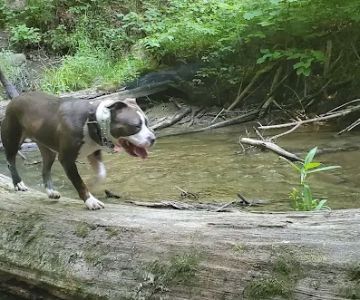What Does it Take to Become a Veterinarian? A Complete Guide
- Education Requirements for Becoming a Veterinarian
- Key Skills Needed to Become a Veterinarian
- Veterinarian Training and Internships
- Different Career Paths for Veterinarians
- My Personal Journey to Becoming a Veterinarian
Education Requirements for Becoming a Veterinarian
Becoming a veterinarian is a rewarding yet demanding journey, requiring several years of education and hands-on training. As someone who has gone through the process, I can tell you that the path to becoming a vet involves dedication, passion, and a love for animals. So, what does it take to become a veterinarian?
First and foremost, you will need a strong educational foundation. Most aspiring veterinarians begin by earning a bachelor's degree in a science-related field, such as biology, chemistry, or animal science. During this time, you'll need to excel in subjects like biology, physics, and chemistry, as these are prerequisites for veterinary school.
Key Skills Needed to Become a Veterinarian
In addition to formal education, certain personal qualities and skills will play a crucial role in your success as a veterinarian. One of the most important attributes is empathy—being able to connect with both animals and their owners is essential. Along with empathy, you will also need to develop strong problem-solving and critical thinking skills, as you will often need to diagnose and treat a wide variety of medical conditions in animals.
Hands-on skills are equally important. Whether you're performing surgery, administering treatments, or simply conducting physical exams, veterinarians must be adept with their hands. Communication skills are also vital, as you will need to explain diagnoses and treatment plans to pet owners in a clear, compassionate manner.
Veterinarian Training and Internships
Once you've completed your undergraduate education, the next step is attending a veterinary school. Veterinary schools are highly competitive, and admission often requires excellent grades, experience working with animals, and a demonstrated passion for animal care. The typical veterinary program lasts four years and culminates in a Doctor of Veterinary Medicine (DVM) degree.
During veterinary school, you will engage in both classroom learning and hands-on clinical training. You'll study subjects such as animal anatomy, pharmacology, pathology, and surgical techniques. It's also essential to complete internships or externships to gain real-world experience, which is often crucial for landing a job after graduation.
Different Career Paths for Veterinarians
As a veterinarian, you have a wide variety of career paths to choose from. While many veterinarians work in private practice, others specialize in fields like surgery, dermatology, or oncology. Some may also choose to work in research, wildlife conservation, or even the military. The opportunities are diverse and allow for a wide range of experiences in the veterinary field.
Private Practice Veterinarian
Working in private practice is one of the most common paths for veterinarians. This involves diagnosing and treating animals in a clinic setting, often focusing on pets such as dogs and cats. Many private practice vets also perform routine surgeries, offer vaccinations, and provide preventive care.
Veterinary Specialist
For those who wish to dive deeper into a specific area of veterinary medicine, becoming a veterinary specialist is a rewarding option. Specialists often focus on particular types of animals or medical conditions, such as dermatology, cardiology, or surgery. Becoming a specialist requires additional years of training and certification beyond the DVM degree.
Research and Public Health
Veterinarians who have a passion for research or public health can work in government agencies, pharmaceutical companies, or non-profit organizations. These veterinarians may focus on issues like disease control, animal welfare, or veterinary public health initiatives.
My Personal Journey to Becoming a Veterinarian
When I decided to become a veterinarian, I knew it would require years of hard work and commitment. My journey began in college, where I earned a degree in animal science and volunteered at a local animal shelter. I spent countless hours working with animals, building relationships with both them and their owners, which solidified my desire to pursue veterinary medicine.
After gaining the necessary experience, I applied to veterinary school and was thrilled to be accepted into one of the top programs. The years of veterinary school were challenging but incredibly rewarding. I gained extensive knowledge in animal medicine and had the opportunity to work with a variety of animals, from household pets to exotic species.
Upon graduation, I became a licensed veterinarian and began working in a private practice. While the road to becoming a vet is long, the sense of fulfillment I get from helping animals and their families makes every step of the journey worthwhile. If you're passionate about animals and ready to put in the hard work, becoming a veterinarian can be an incredibly rewarding career.
If you're ready to take the first step toward becoming a veterinarian, explore the educational programs, resources, and guidance available to help you achieve your dream. With the right education, training, and passion, you can make a lasting impact in the world of veterinary medicine.











